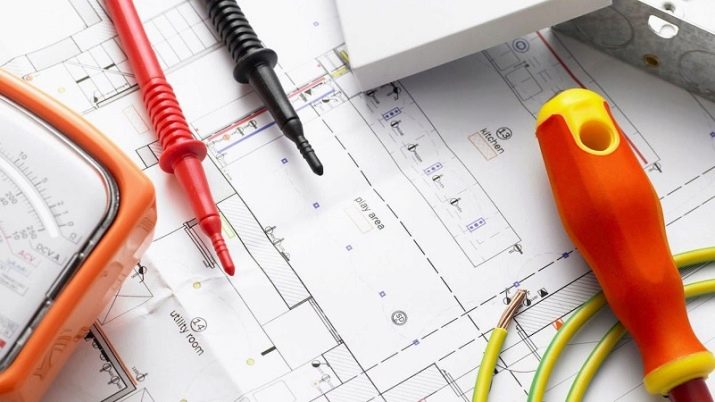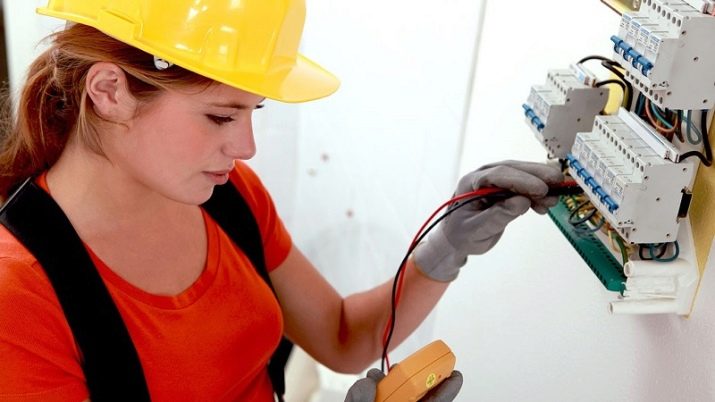All about the profession of electrical engineer

Nowadays, the specialty of an electrical engineer is one of the most demanded in the labor market. Let's dwell on the description of some aspects of this profession, talk about the professional standard, key skills and competencies, as well as the requirements for education and work experience in the specialty.
Peculiarities
The main task of an employee in the position of an electrical engineer is carrying out activities related to the design, adjustment and maintenance of power grids on the balance sheet of a commercial or industrial enterprise, as well as the operation of electrical equipment and wiring... This employee is responsible for the efficient use of incoming electricity, and also oversees the strict observance of safety requirements for all employees of the enterprise. To understand the features of the profession, first you need to figure out how an electrical engineer differs from an ordinary electrician and electrician. All of these specialists are associated with activities related to the maintenance of power grids, but there are significant differences between them.
In particular, an electrician is a specialist who makes repairs, maintains and adjusts electrical equipment. In the narrowest sense, this is a professional who is engaged in the maintenance of home networks. An electrician, unlike an electrician, works in industry, and his activities are related to the maintenance of high and low voltage equipment. Both work with objects, the voltage in which is 1000 volts or more.

Electrical engineer has experience in all of the above areas... His responsibilities include designing, calculating energy-intensive devices and electrical systems, as well as maintaining technical documentation, supporting projects at all stages and monitoring the implementation of work related to the operation and configuration of electrical systems.
The electrical engineering profession requires specialized knowledge in areas such as electrical engineering, mathematics, physics, and computer science. Training of the profession is carried out by technical universities, in addition, for workers in this area it will be useful to regularly take specialized courses.
To every person who decides to link his career with an electrician, you should be prepared for the fact that, sooner or later, problems arise in the work... Therefore, in most cases, this position is hired by highly qualified experienced specialists who are well versed in all types of power plants and electrical equipment, they know from personal experience all the intricacies of installation, operating rules and compliance with safety measures.
The position of an electrical engineer is a leading one, therefore, all orders of the person holding this position, in one way or another, related to power grids, are considered mandatory for all employees of the enterprise.
The electrical engineer is subordinate to electromechanics, as well as electricians and electricians.

Responsibilities
At the beginning of their careers, electrical engineers are primarily concerned with debugging, repair, installation and regulation of electrical devices, as well as electrical circuits. The professional standard of these specialists includes the summing and spreading of shields in industrial, warehouse and commercial facilities, cables and other electrical communications, as well as other electrical work.
The position of a leading electrician or site manager requires a higher level of responsibility. A person who takes such a position will have to work with energy companies, as well as monitor compliance with labor protection standards. This person bears full responsibility for all equipment and devices included in the electrical network of the enterprise.
The highest rung of the career ladder - the position of an electrical engineer - includes additional functionality. His job description includes:
- drawing up projects and diagrams for connecting generating electrical units to the DC network;
- connecting each user to the power grid;
- creation of systems for internal and external electrical supply;
- supervision of projects and comprehensive supervision over them.

Knowledge and skills
Depending on the complexity of job duties, as well as the specifics of the enterprise, the employer may have different requirements for the jobseekers. However, in the most general terms the basic requirements for the knowledge and skills of a successful candidate coincide.
The main requirement is to obtain a higher specialized technical education. From ordinary electricians who do not have much work experience, they are usually expected to have basic knowledge of electrical engineering, skills in reading electrical circuits and drawing them up, and working with relay automation.
To qualify for an electrical engineer job, a candidate must demonstrate the following qualities to a potential employer:
- the ability to draw up projects for the electrification of facilities;
- practical skills in working with electrical equipment of various types;
- an understanding of the basic mechanical processes underlying the operation of electrical and electronic equipment and affecting their functionality;
- knowledge of the principles of construction and organization of power supply in industrial and commercial enterprises;
- understanding of the assembly mechanism of a set of installations.

To develop electrical circuits and projects, applicants will need:
- work experience of at least 5 years in various design companies;
- excellent knowledge of existing building codes;
- skills in working with special computer programs such as AutoCAD and Ms Office.
Workers in this area should know basic fire safety rules and labor protection rules, as well as standards for the safe operation of electrical equipment and established requirements for working with electrical facilitiesapproved on the territory of their country.
Carrying out professional duties is often associated with long trips and maintenance of facilities on the road, therefore an important advantage of any candidate will be the availability of his own car or driver's license, as well as the readiness for frequent business trips.
On the list of personal qualities required of an electrical engineer, employers demand responsibility and increased attention to detail.

Education
The position of a simple electrician requires the obligatory presence of additional education. Any self-education with the help of online courses and books in this specialization does not give any basis for hiring as a specialist in working with electrical equipment., especially for the position of an electrical engineer. You don't have to blindly trust advertisements for online courses and part-time programs that promise to make you a pro. The fact is that for a person who has received such an education, even with experience, work is allowed only inside his house during the installation and repair of household electrical wiring.
Much more hands-on experience can be gained by working in a crew with qualified electricians. However, even in this case, you will not be accepted for the desired position and will not be allowed to the industrial power grids. Accelerated courses allow you to become a Category 1 electrician and provide further employment opportunities only with the lowest grade at the beginning of your career. Such courses are not enough to qualify for the position of an electrical engineer of a higher level.
After graduating from college or vocational school, a person can declare his intention to take the position of an electrician with a higher grade, but only if he already has experience of successful work at lower grades.
An applicant for an electrical engineer job must have a university degree. Upon graduation, university graduates are awarded the qualification of "engineer", which provides the necessary basis for accepting responsibility in a manufacturing or commercial enterprise, although in practice employers require long-term professional experience.
A person holding an engineering position needs to improve their qualifications from time to time. The purpose of retraining is to increase the level of knowledge and competencies of the employee, taking into account new engineering and power solutions, the development of new technologies and changes in regulatory documents. In such courses, they teach not only the method of working with power grids and equipment - special attention is paid here to the safety rules of ETKS, since in this profession it plays a vital role.

average salary
It so happens that university graduates immediately after graduation are appointed to the position of engineer. As a rule, such an approach justifies itself only if the employer is absolutely confident in the employee's competencies, professional skills and abilities. In most cases after receiving a diploma, a young specialist must work for several years in the position of an electrician - this is the only way he gets the necessary education and experience that allows him to apply for an engineering vacancy.
Appointment to such a responsible position of a person without practical experience entails great risks., since no theoretical knowledge, especially in such a dangerous area as electricity, can replace practical skills. Those wishing to obtain the specialty of an electrical engineer should clearly understand that graduation from the institute does not guarantee them a good level of payment - a specialist's salary is directly proportional to his work experience and professional category.
The level of payment for an electrical engineer depends largely on the region of his residence. So, in the capital, this employee earns at least 35 thousand rubles, the average salary is 55 thousand rubles, and the maximum amount reaches 100-110 thousand rubles. In the regions, an electrical engineer receives an order of magnitude less.

Where to work?
An electrical engineer can work in any public or private enterprise associated with construction, production and utilities. This person prepares projects for launch, monitors implementation, accepts the project, and if it does not meet the required standards, sends it for revision.
Electrical Engineer Vacancy relevant these days in all regions of Russia, as, indeed, in any other country. A person with the skills of working with electrical engineering will never be left without work, since in all developed countries of the world, human activities are closely related to electricity.
There will always be a need for people who can competently organize the electrification of residential, industrial and commercial facilities.









